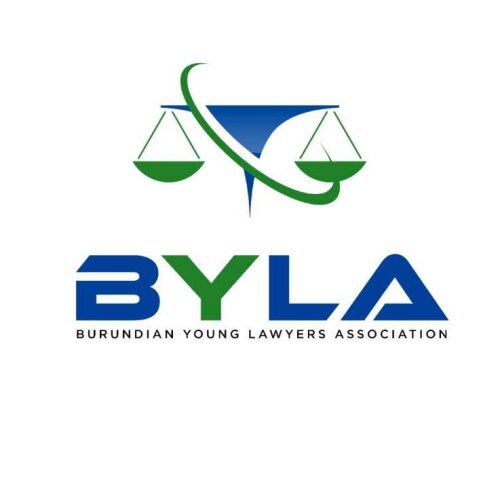Best Climate Change Law Lawyers in Bujumbura
Share your needs with us, get contacted by law firms.
Free. Takes 2 min.
List of the best lawyers in Bujumbura, Burundi
About Climate Change Law in Bujumbura, Burundi
Climate Change Law in Bujumbura, Burundi, comprises the legal rules and frameworks dealing with the impact of human activity on the environment, particularly as it relates to global warming and sustainable development. The field encompasses national legislation, international obligations, policy initiatives, and local administrative measures aimed at reducing greenhouse gas emissions, preserving natural resources, and adapting to changing climate conditions. Given Burundi’s vulnerability to climate hazards such as droughts, floods, and soil erosion, the government, often in partnership with international organizations, has increasingly prioritized the adoption and enforcement of climate-related regulations.
Why You May Need a Lawyer
There are a number of situations in which individuals, companies, or communities in Bujumbura may require legal help in the field of Climate Change Law. Some common scenarios include:
- Compliance issues for businesses required to adhere to newer environmental regulations.
- Legal disputes over land use or access to natural resources affected by climate policies.
- Seeking compensation or support after climate-related damages, such as floods.
- Applying for permits or licenses for activities with environmental impacts.
- Defending against claims of environmental harm or pollution.
- Participating in government or community climate adaptation projects.
- Understanding international agreements or grants relevant to climate change.
- Helping NGOs or civil society groups advocate for stronger climate protection.
A knowledgeable lawyer can help you navigate the complexity of local and international regulations while protecting your rights and interests.
Local Laws Overview
Burundi's approach to Climate Change Law is shaped by its international commitments, particularly as a party to the United Nations Framework Convention on Climate Change (UNFCCC) and the Paris Agreement. Nationally, Burundi has developed the National Climate Change Policy and associated strategies that guide legal, administrative, and policy responses. Key aspects include:
- Environmental Code of Burundi: The code establishes basic principles around environmental protection, sustainable resource management, and the prevention of environmental damage.
- Climate Change Adaptation Strategies: Sectoral policies focus on agriculture, water resources, and energy, reflecting the country's development needs.
- Permits and Environmental Assessments: Many activities require prior environmental assessment and permitting to ensure compliance with national policies.
- Community Rights and Participation: The law increasingly recognizes local community involvement in forest conservation, land use planning, and natural resource management.
- Enforcement and Penalties: There are penalties for violating environmental regulations, including climate-related infractions such as illegal deforestation or pollution.
However, implementation and enforcement can sometimes face challenges due to limited resources or awareness, making legal support particularly valuable.
Frequently Asked Questions
What is Climate Change Law?
Climate Change Law refers to all regulations and legal principles designed to address issues of global warming, environmental conservation, and adaptation to climate impacts. It covers laws about emissions, sustainable practices, resource management, and more.
Does Burundi have specific laws on climate change?
Yes, Burundi has integrated climate-related provisions into its Environmental Code and has developed national policies aligned with international standards to combat and adapt to climate change.
Who enforces climate change related laws in Bujumbura?
The Ministry of the Environment, Agriculture and Livestock, along with relevant agencies and local authorities, are responsible for enforcing climate-related laws and regulations in the city.
Can businesses be fined for violating climate change laws?
Yes, businesses that fail to comply with environmental and climate-related regulations can face fines, suspension of activities, or other penalties under national law.
Are there any incentives for businesses to adopt green practices?
There may be opportunities through government programs or international partners for incentives such as technical assistance, grants, or preferential treatment for adopting environmentally friendly practices.
What rights do communities have regarding climate change policy?
Communities have the legal right to participate in certain decisions affecting their environment, to be consulted, and, in some cases, to co-manage local resources such as forests and water.
How can individuals file a complaint about environmental harm?
Individuals may contact the relevant local or national environmental authority, submit a written complaint, or seek legal representation to pursue claims about environmental harm.
Is legal aid available for climate change cases?
Some organizations and government programs may provide legal aid or free advice, especially for vulnerable or impacted populations. Consulting with local NGOs can also be a source of assistance.
Which international agreements is Burundi part of?
Burundi is a signatory to major environmental treaties including the Paris Agreement, the United Nations Framework Convention on Climate Change (UNFCCC), and others related to biodiversity and resource protection.
Does Burundi encourage public participation in climate-related decisions?
Yes, both national policy and international agreements emphasize the importance of public input, and mechanisms are being strengthened to facilitate community participation.
Additional Resources
If you are seeking more information or legal advice related to Climate Change Law in Bujumbura, consider reaching out to the following entities:
- Ministry of the Environment, Agriculture and Livestock: The principal national authority for environmental and climate policy.
- Burundi Bar Association: For referrals to legal professionals specializing in environmental and climate change law.
- National Office for Environmental Protection: For environmental permits, assessments, and complaints.
- Local NGOs and International Organizations: Groups such as Observatoire de l’Action Gouvernementale, or UN Environment Programme, often run projects and provide guidance on climate law issues.
- Community-Based Organizations: These may offer support, especially in rural or affected areas, on climate adaptation or legal mobilization.
Next Steps
If you need legal assistance related to Climate Change Law in Bujumbura:
- Identify the specific issue or concern you are facing, such as a business compliance, land dispute, or community rights.
- Consult the relevant government authority or seek out specialized legal professionals through the Bar Association.
- Gather all documentation related to your concern, such as permits, correspondence, or incident reports.
- Consider contacting NGOs or community organizations that may offer advice, representation, or support.
- Schedule a consultation with a lawyer experienced in environmental or climate-related law to discuss your situation and next legal steps.
Professional legal advice can help you understand your rights, comply with regulations, and protect your interests under Burundi’s evolving Climate Change Law framework.
Lawzana helps you find the best lawyers and law firms in Bujumbura through a curated and pre-screened list of qualified legal professionals. Our platform offers rankings and detailed profiles of attorneys and law firms, allowing you to compare based on practice areas, including Climate Change Law, experience, and client feedback.
Each profile includes a description of the firm's areas of practice, client reviews, team members and partners, year of establishment, spoken languages, office locations, contact information, social media presence, and any published articles or resources. Most firms on our platform speak English and are experienced in both local and international legal matters.
Get a quote from top-rated law firms in Bujumbura, Burundi — quickly, securely, and without unnecessary hassle.
Disclaimer:
The information provided on this page is for general informational purposes only and does not constitute legal advice. While we strive to ensure the accuracy and relevance of the content, legal information may change over time, and interpretations of the law can vary. You should always consult with a qualified legal professional for advice specific to your situation.
We disclaim all liability for actions taken or not taken based on the content of this page. If you believe any information is incorrect or outdated, please contact us, and we will review and update it where appropriate.












